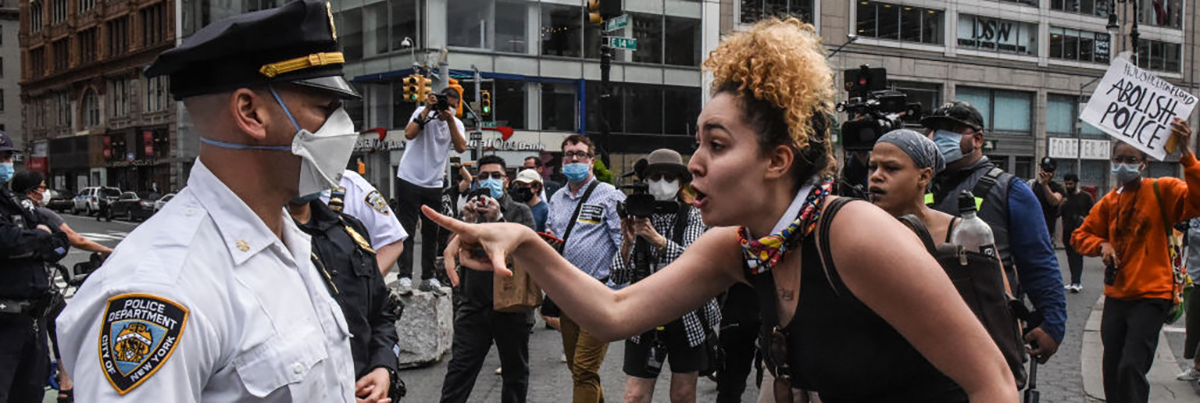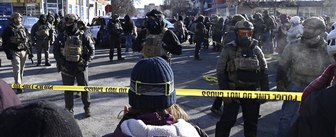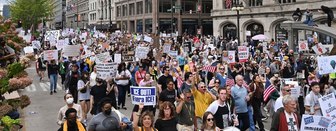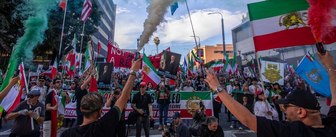What difference will the protests against police behavior and racial inequality make in America? According to the latest Economist/YouGov Poll, there is some hope for the future—especially among Black Americans—but at the moment, Americans are more likely to see the protests as dividing the country (53%), not uniting it (15%).
White Americans are far more likely than Black Americans to view the protests following the Memorial Day death of George Floyd while in the custody of four Minneapolis police officers as dividing the country, both now and in the future. That is particularly the case among white Republicans: 79 percent of whom see the protests as divisive now, and 53 percent of whom believe they will continue to divide the country.
On both questions, Black Americans are more hopeful. A plurality believes the protests currently are uniting the country; by more than two to one Black Americans say after the protests end the country will be more united. The Black Lives Matter protests divide the country politically: Republicans see protestors as more violent than peaceful and think the police have not been forceful enough when dealing with them.
A majority of both Black Americans and white Americans characterize the protestors as mostly peaceful. Republicans, especially white Republicans, do not see them that way. By more than two to one, white Republicans say the protesters are mostly violent. Republicans see the police response as not forceful enough, as do more than a third of all whites adults.
White Americans have become somewhat more likely to believe the police response to the protests should be tougher. Last week, white Americans were closely divided on whether the police were using too much force or were not forceful enough when handling the protests. A third of white Americans said the police were too forceful, 30 percent said they were not forceful enough. This week, the balance has shifted: 35 percent of white Americans believe the police have not been forceful enough, while 29 percent think they have used too much force.
The president’s management of the protest continues to get negative evaluations, with little change in this perception over the last month. This week, 36 percent approve of the president’s handling of the protests, while 53 percent disapprove. White Americans are closely divided when they assess the president on this issue: 43 percent approve and 46 percent disapprove.
Still, there is optimism about the future of policing and race relations. Both Black Americans and white Americans are optimistic that the protests will eventually lead to police reform and better race relations.
And while 69 percent of the country believes race relations are bad (with a majority believing they have gotten worse in the last three years), pluralities say they will be better in the future: 43 percent of whites and 45 percent of Black Americans expect this, while only one in five believe race relations will get worse.
See the toplines and crosstabs from this week's Economist/YouGov Poll
Related: Will COVID-19 unite or divide the nation?
Methodology: The most recent Economist survey was conducted by YouGov using a nationally representative sample of 1,500 U.S. adult citizens interviewed online between July 5 - 7, 2020. The approximate margin of error is 3.2 percentage points for the overall sample. Samples are weighted according to gender, age, race, and education based on the American Community Survey, conducted by the US Bureau of the Census, as well as 2016 Presidential vote, registration status, geographic region, and news interest. Respondents were selected from YouGov’s opt-in panel to be representative of all US citizens.
Image: Getty









